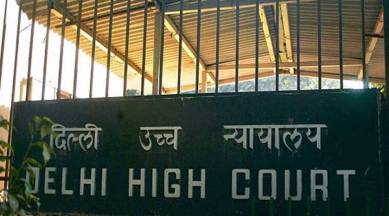Stay updated with the latest - Click here to follow us on Instagram
Widowed or divorced daughters of freedom fighters entitled to pension under Swatantrata Sainik Samman Pension Scheme: Delhi HC
The Delhi High Court was hearing the Centre’s plea against a single-judge order that allowed a widowed woman, the daughter of a freedom fighter, to receive pension under the 1980 scheme

Dismissing the Centre’s plea against a single-judge order, the Delhi High Court recently held that widowed or divorced daughters of freedom fighters will be entitled to pension under the Swatantrata Sainik Samman Pension Scheme, 1980.
A division bench of Justice Rajiv Shakdher and Justice Talwant Singh in its January 20 decision held that the expression “unmarried” refers to a person who is not married, and “includes a woman who is single i.e., who was married but divorced and even a woman who is widowed”. “Therefore, in our view, the 1980 scheme did not contemplate exclusion of widowed daughters as is sought to be contended on behalf of UOI (Union of India),” the high court said.
monthly limit of free stories.
with an Express account.
The high court was hearing the Centre’s plea against an order of a single judge which had allowed a widowed woman, Indira Kumari, whose father had participated in the Independence movement between 1941-42, to receive pension under the scheme. When her father was alive, he started receiving pension in December 1997. In 2014, the government issued revised policy guidelines to close the gaps and deal with the fact that banks were dispensing pensions to married daughters who were not eligible.
When her father died in November 2019, the woman approached the bank to grant her pension. The request was forwarded to the Ministry of Home Affairs (MHA) which rejected it on February 12, 2020. The woman challenged this decision before a single judge of the high court, who ruled in her favour, however before she could reap the benefits of the pension, she died in October 2021. In November 2021, the Centre filed an appeal against the single judge’s order but when the case was heard, it said that the benefit of the 1980 Scheme would be extended to Kumari. Based on their stand, the appeal was closed. However, the Centre then had a change of heart and moved a review plea against the order in appeal.
Examining the 2014 guidelines, the high court remarked that it excludes from the category of dependent person, a widow of the deceased freedom fighter if she remarries, but does not extend this exclusion to a widower. “In other words, if a freedom fighter was a woman, and if she was to pass away, then, even if the husband was to remarry, he could still avail the pension under the 1980 scheme. There is a distinct possibility of para 6.2.2 of the 2014 guidelines being declared violative of Article 14 of the Constitution, if it were to be challenged. We need not dwell further on this aspect of the matter as it is not the remit of the instant writ action,” the high court said.
The court added that the 2014 guidelines (issued subsequent to the scheme) were framed to clarify the 1980 scheme and not amend it. “As alluded to hereinabove, para 5.2.5 of the 2014 guidelines is intrinsically inconsistent with the remaining provisions of both 2014 guidelines as also the provisions of the 1980 scheme,” the high court said.
The high court added that if the 1980 scheme is the ground norm for identifying eligible dependents, all that we have to examine in this case is whether or not a widowed daughter falls within the ambit and scope of unmarried daughter. “We see no reason not to extend the benefit of the 1980 scheme to a widowed/divorced daughter,” it said.
It referred to a decision of the division bench of Punjab and Haryana High Court in 2016 which had held that the expression “unmarried daughter” includes a divorced daughter. It also noted that when the Centre challenged this decision, the Supreme Court had dismissed the Centre’s appeal on merits.
The high court further emphasised that its decision was not based on a concession given by the Centre to Kumari’s heirs but on the “merits of the case”. Although it allowed the review plea and recalled the order which had closed the appeal, it dismissed the Centre’s appeal on the merits of the case. It held that Kumari’s legal heirs would receive pension “from the date of the application made” by Kumari till the date of her death, October 2, 2021. “The UOI will ensure that the monetary benefit is extended to the legal representative of the deceased respondent Ms Indira Kumari, if otherwise there is no impediment under the 1980 scheme, within the next six weeks,” the high court ordered.